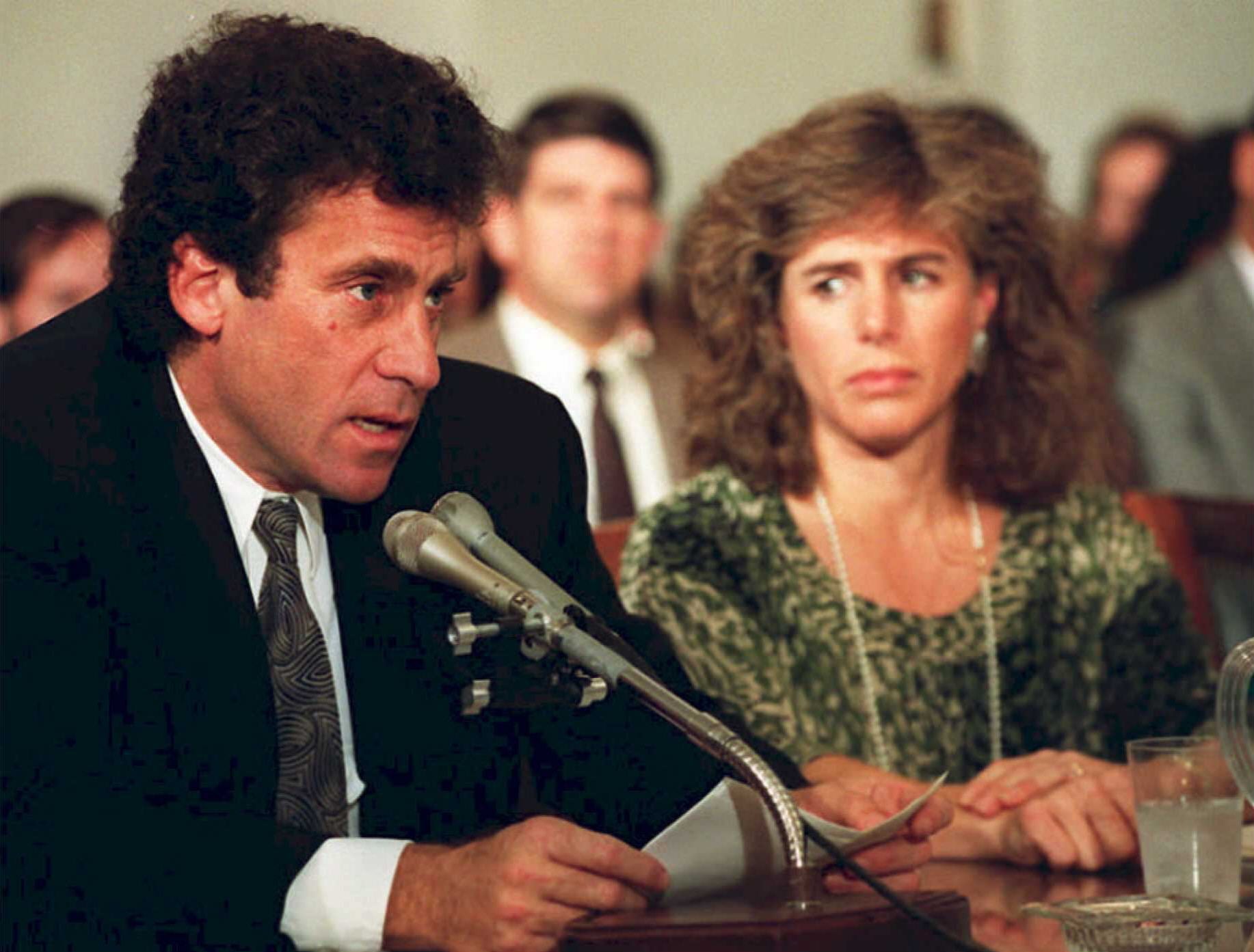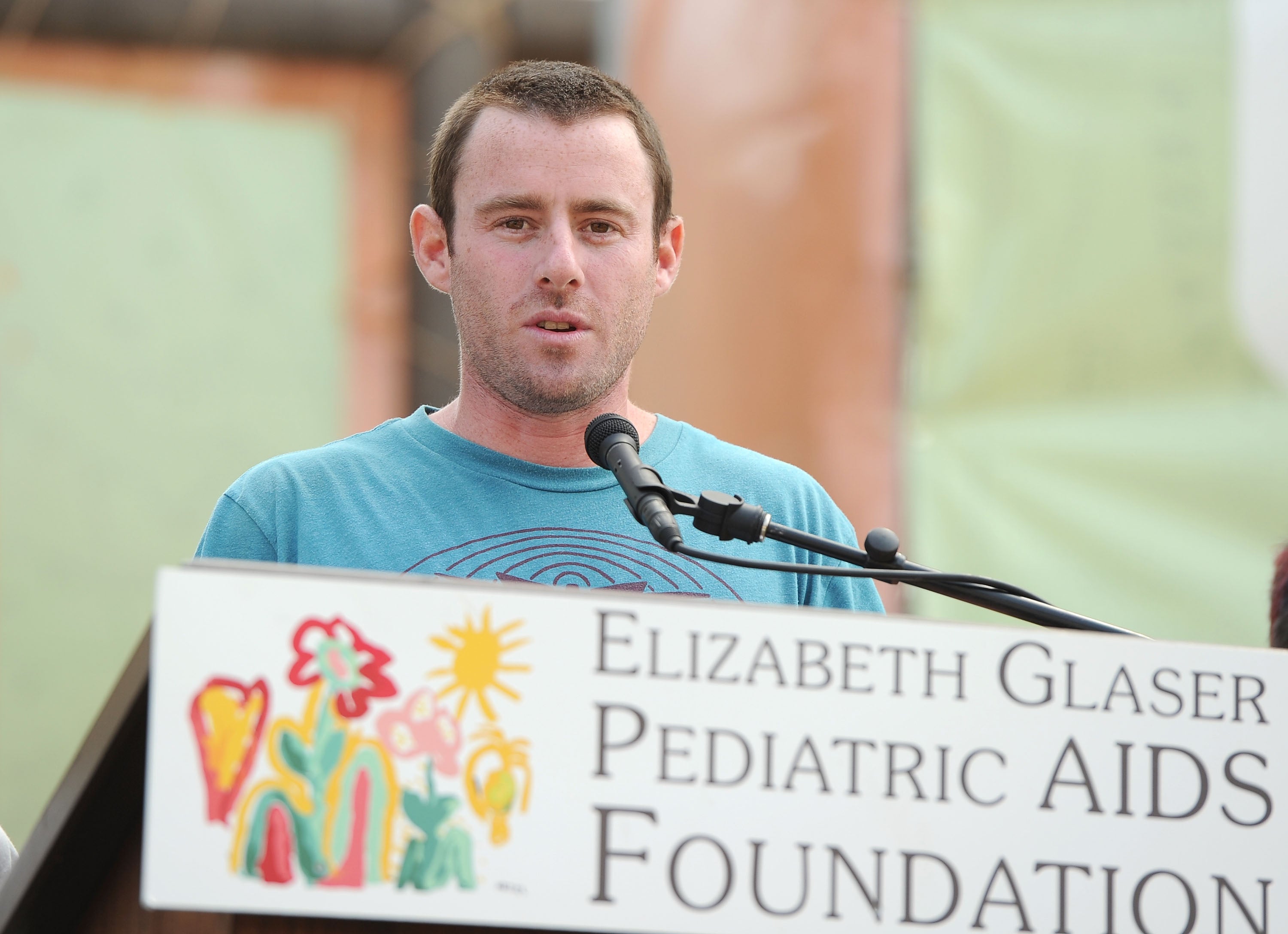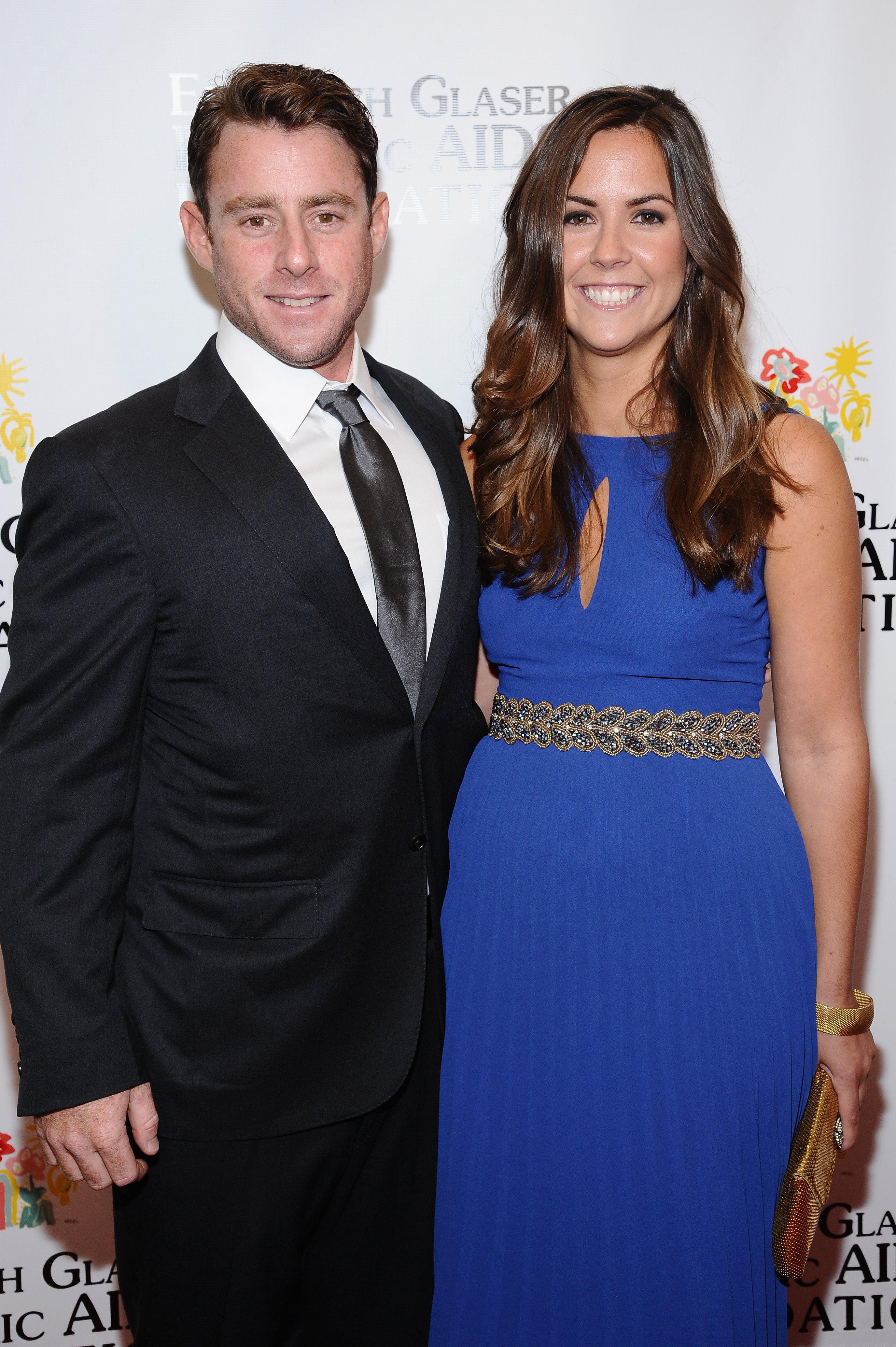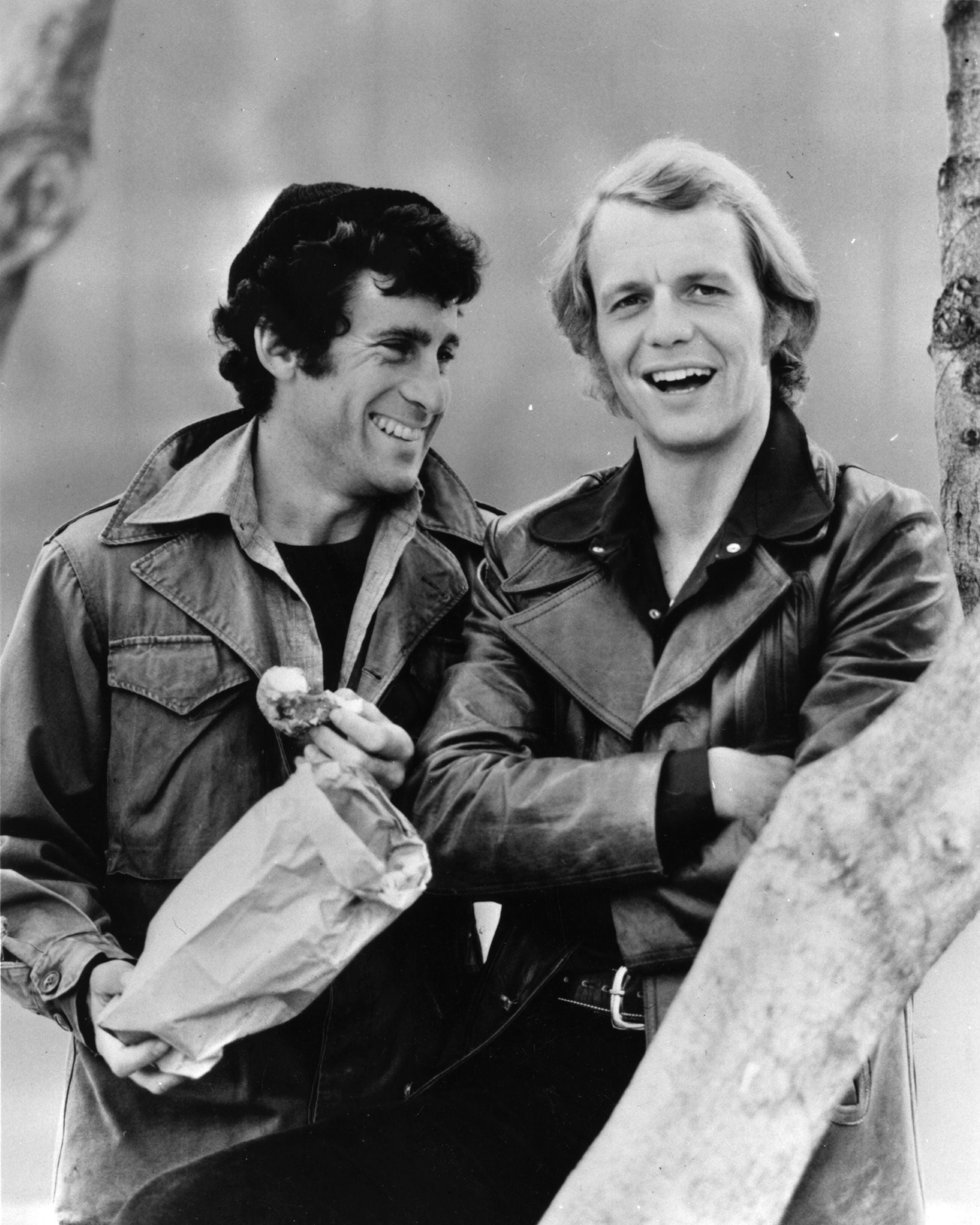
Jake Glaser is sitting in a spacious house in Santa Monica, California, overlooking the waves he loves to surf. He’s been staying with family friends. Behind him hang several pieces of modern art, including one purchased by his father Paul Michael Glaser (best known for his portrayal of Detective Dave Starsky in the 1970s show Starsky & Hutch).
We’re talking about Glaser’s activism and his efforts to de-stigmatize HIV/Aids. Glaser, 37, is an ambassador for the Elizabeth Glaser Pediatric Aids Foundation, created by his mother Elizabeth Glaser in 1988 after she and her two children tested positive for HIV.
“When I get to stand in front of someone who believes that their HIV defines them in some negative way, and I get to say, ‘My name’s Jake Glaser, I’m HIV positive,’ and I can beat my chest and say ‘I’m strong, I’m powerful and that’s not gonna define me’ – you should see the look on their face,” Glaser tells me over Zoom. “They’re like, ‘What? I didn’t know we could even talk like that about HIV.’”
Elizabeth Glaser gave birth to her first child, a girl named Ariel, in August 1981. She haemorrhaged while in labour and received seven pints of blood via transfusion. In 1986, Ariel became ill, and a test revealed she had developed Aids. Elizabeth tested positive for HIV, as did her son Jake, born in 1984. The blood transfusion given to Elizabeth was determined to have been the origin of the infection, and Elizabeth had unknowingly transmitted the virus to her children – to Ariel via breastfeeding, and to Jake in utero.

There have been significant changes in the treatment and prevention of HIV over the past four decades. Nowadays, people with HIV can maintain an undetectable viral load thanks to antiretroviral therapy, meaning they can’t transmit the virus to others through sexual activity. Parents with HIV can have HIV-negative children. And PrEP helps people who don’t have HIV, but think they might be exposed to the virus, to limit their risk of infection.
But at the time Elizabeth Glaser and her children were diagnosed, treatment was in its infancy. The FDA approved AZT, the first antiretroviral drug for the treatment of Aids, in 1987. In her 1991 memoir In the Absence of Angels, Elizabeth Glaser recalled struggling to get access to the medication for Ariel that same year, as it hadn’t yet been approved for paediatric use. Ariel died in 1988 at seven years old. Elizabeth died in 1994, aged 47, after a lifetime of advocacy.
Jake Glaser told People last year he had experienced survivor’s guilt in his youth. “I resented my mom and sister for what I thought was abandonment,” he told the magazine. “And I beat myself up thinking, ‘Why couldn’t I have saved them?’”
Throughout his adult life, Glaser has continued his mother’s work through the Pediatric Aids Foundation. The organisation focuses on HIV and Aids prevention, working across several regions in the world to develop healthcare programmes for adults, adolescents, and children. As an ambassador, Glaser seeks to educate others, including young people, about the virus, and to show them that the picture has changed for those who contract it.

“The conception around the reality of HIV is stuck in the past,” he tells The Independent. “There has been no space for young people to say, ‘To hell with that. I’m going to tell my own story.’ And our stories now are undetectable viral loads, discordant couples [in which one partner has HIV and the other doesn’t], and HIV-negative children. We have the tools, through behaviour, to eradicate this virus from humanity.”
Jake Glaser is an optimist. He’s an animated, warm conversation partner. His work is brought to life through a string of meaningful anecdotes – of the intense conversations he’s had during his missions as an advocate, of getting tested with people who are too scared to do it alone, of showing people his medication to demystify treatment.
Even in the ongoing Covid pandemic, Glaser finds a silver lining. The pandemic, he says, is an opportunity for us to normalise much of the language of epidemiology, as well as practices such as getting tested for a given illness.
“What really took my breath away is that we’ve had to express a lot of empathy and understand how our actions impact other people. I think that’s something we very rarely have the opportunity to do in this world,” he says. “And then all of a sudden, testing [arrived]. We want to get tested. We want to know our status. And I’m sitting there in parking lots full of cars of everybody going to get a Covid test, and no one’s hiding their face. No one’s ashamed to go take this action. Everyone’s doing it together.”

Of course, he says, there are and always will be divisions, but he has been struck by people’s willingness to not only adopt, but promote, safety practices – for example by posting photos of themselves wearing masks or getting their Covid vaccines and boosters. “As an HIV-positive person, I sat there and I said, ‘Could you imagine if [the Covid and HIV crises] were flip-flopped? What if Covid had been in the eighties and HIV was just rearing its head, and we had social media and people were able to become part of the narrative on the importance of taking these actions?’”
When Glaser was a child, only a few schools in LA County would allow him and his sister to enrol because of their HIV status. More recently, a young person got “freaked out” after sharing a fork with him. (HIV cannot be transmitted through saliva, nor by sharing utensils.) “It’s just a reflection of where this narrative stands within the educational system – not just here, but also across the world,” he says.
Glaser is no-nonsense and direct in his approach. Young people, he tells me, can be apprehensive of the prospect of taking medication every day – so he’ll show them his own pills. “I’ll be like, ‘Look, I take these two teeny tiny pills that are smaller than an Advil,’” he says. “And then I’ll show them the pills professional athletes take, or” – he laughs – “what I take after a Friday night out to cure my hangover. Can we just let go of this stigma around taking medication to be a healthy, functioning human?”
It's not always easy to access HIV medication, however – barriers can be both geographical and financial. In the US, without health insurance, drugs can cost thousands of dollars a month. (The median household income in the US was $67,521 – around £50,000 – in 2020.) Glaser himself once ran into an issue with his insurance company, and was told at the pharmacy counter he’d have to pay $2,400 (£1,779) to pick up his prescription.

“My heart stopped,” he says. “I’m fortunate to be able to have health insurance, and even that’s not cheap. [This situation] put me into this moment of really feeling for so many people who don’t have access to medication, whether it’s geographically or financially. If we could create that access, and create it in a way that is shed of that old stigma, then I think people who need to be on treatment will find their way to it.”
On the topic of stigma, he brings up the recent TV show The White Lotus, in which a character finds out his father died not from cancer but from Aids, which he had contracted while having sex with men. Glaser didn’t find the storyline helpful. “Heterosexual couples can pass this virus on,” he says. “Homosexual couples can pass it on. Intravenous drug users can pass it on. There’s a handful of ways this can happen. Even though that was a short moment in a TV episode, it’s not helping the conversation.”
Stigma, he says, is a topic he has discussed with his father, taking him to task for the narratives he feels were inherited from his parents’ generation. “I understand that it’s very challenging for people to let go at times and be like, ‘Maybe I don’t know any more. Maybe I do need to pass the mic to the next generation,’” he says. “That’s not any one person’s fault. But I say this to my dad. I tell him, ‘Dad, [your generation] never asked me if I wanted this stigma. Your generation created it. You never asked me if I wanted it. You never asked me how I felt about it. And at the end of the day, I’m just gonna give you the bird for it.”

When he speaks with young people, Glaser often tells them “there’s healthy ways to rebel”. “One way to do that here is to say, ‘I love my dad, he’s given me an amazing life, but that generation created the stigma that still plagues my generation today,’” he adds. “And I’m going to forget it. I’m going to move forward and use the tools I have to create a new narrative.”
What did Paul Michael Glaser, now 78, say in response, I ask? Glaser laughs. “Well, my dad’s a bit of a unique individual,” he says. “So he chuckled at it and he said, ‘Yeah, you’re right.’ ... My parents really did come to the table in the Eighties, and said, ‘We’re going to challenge the status quo, and we’re going to ask questions to which we don’t have answers, and we’re going to admit that we don’t have answers.’ I do it in my own life, sometimes. I’ll tie myself to a thought just because I don’t wanna admit that I don’t know. And it’s okay not to know.”







